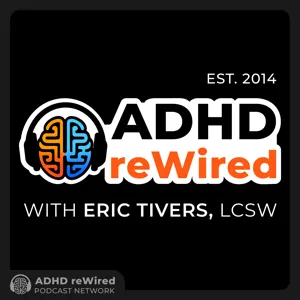Podcast Summary
A personal podcast journey for the host and a fisherman listener: The Blind Boy podcast is an intimate and introspective journey for the host, catering to a unique listener, a fisherman, with adjustable sound and a poem by Liam Neeson adding a surreal touch.
The Blind Boy podcast is a personal and introspective journey for the host, who imagines a unique listener, a fisherman who broadcasts the podcast to the ocean. The host adjusts the podcast's sound to cater to listeners' feedback and reads a poem submitted by Hollywood actor Liam Neeson. The podcast is a reflection of the host's internal conversations and a source of comfort for the fisherman in the depths of the Atlantic Ocean. The host's audience is vast, but the recording process is an intimate and personal experience for him. The poem read by Liam Neeson, titled "Beauty Routine at the Zoo," adds a surreal and humorous element to the podcast. The host encourages listeners to explore the unusual Japanese animated film "Ponyo," which features Liam Neeson's voiceover work.
Studio Ghibli's unique storytelling and empathy towards children's emotions: Studio Ghibli's animated films offer imaginative stories, empathetic understanding of children's emotions, and visually appealing hand-painted backgrounds, setting it apart from Western animation.
Studio Ghibli's animated films, including "Ponyo," offer unique and imaginative stories, often with unexpected elements. In "Ponyo," Liam Neeson's voice as an underwater dandy seeking his lost daughter echoes the plot of "Taken," but the tone and execution are vastly different. The empathy and understanding of children's emotions in Studio Ghibli's storytelling sets it apart from Western animation. A standout example is "My Neighbor Totoro," a film that resonates with both children and adults. The hand-painted backgrounds and aesthetically pleasing visuals add to the overall appeal. While "Taken" and some men's rights activists may focus on the issue of absent fathers, Studio Ghibli's films offer a more compassionate perspective on relationships and emotions. Overall, Studio Ghibli's films are a testament to the power of imaginative storytelling and the importance of understanding and empathizing with children's emotions.
Exploring the human condition through childhood experiences in My Neighbor Totoro: My Neighbor Totoro resonates with both children and adults by delicately portraying the emotional experiences of children during times of change and stress, using imagination as a coping mechanism, while shielding young viewers from upsetting details.
Studio Ghibli animations, such as "My Neighbor Totoro," stand out for their ability to resonate with both children and adults, not through double entendres or hidden adult jokes, but through their exploration of the human condition and the way they portray the emotional experiences of children. The film follows two young girls as they adjust to a new life after their mother moves into the hospital, and it does so with a deep empathy for a child's perspective, allowing them to retreat into fantasy and imagination during times of stress and change. The film's lack of explicit information about the mother's condition shields young viewers from upsetting details, while still allowing for moments of wonder and magic. Overall, "My Neighbor Totoro" is a beautifully crafted story about childhood, change, and the power of imagination.
Exploring childhood emotions through surrealism in 'My Neighbor Totoro': The film's use of surreal elements reflects the limited understanding and language of children dealing with complex emotions, encouraging adults to embrace their inner child and reflect on their own childhood experiences.
The film "My Neighbor Totoro" uses the surreal and fantastical to explore the emotional experiences and coping mechanisms of childhood. The ambiguity and bizarre elements of the film, such as a bus turning into a 12-legged cat, reflect the limited understanding and language of young children dealing with complex emotions like fear, change, and loss. This discomfort felt by adults watching the film serves as a reminder to embrace our inner child and reflect on our own childhood experiences when we lacked the language to process pain and uncertainty. The film's poetic handling of these themes, along with the real-life phenomenon of arca whales displaying cultural hunting behaviors, highlights the power of imagination and communication in understanding the human condition.
Whales exhibit complex behaviors suggesting learning and cultural transmission: Whales display intriguing behaviors like wearing dead salmon as a fashion statement and attacking boats, indicating complex social structures and communication methods
Whales, specifically Arca whales, exhibit complex behaviors that suggest learning and cultural transmission. From hunting techniques to grieving rituals, these behaviors are passed down through generations, indicating a level of complexity and self-awareness not typically associated with animals. An intriguing example is the "salmon hat trend" in the Pacific Ocean, where whales copied a dominant female's behavior of wearing dead salmon on their heads as a fashion statement. Additionally, some Arca whales in the Mediterranean have recently started attacking boats, suggesting a cultural trend that may have originated from a single traumatized whale. These findings challenge our understanding of animal intelligence and hint at the existence of complex social structures and communication methods among whales. As for the speaker's feelings on the autism assessment, they believe it would have been beneficial in their educational journey as a child but find less value as an adult. They express reservations about being a public representative for the autistic community due to their privileged experiences and the evolving nature of autism diagnosis.
Understanding the Autistic Experience: Autistic experience varies greatly, diagnosis helps navigate society, societal expectations pose challenges, importance of autonomy, and creating an accommodating environment for neurodivergent individuals.
The autistic experience can vary greatly from person to person, and what may be perceived as a disorder in a neurotypical environment may actually be a result of that environment being inhospitable to the individual's unique needs. The speaker in this discussion shares how receiving a diagnosis has helped them navigate society more effectively, but also highlights the challenges they face due to societal expectations and the emotional labor required in certain environments. They use the analogy of whales in an unfavorable environment to illustrate this point. The speaker also emphasizes the importance of autonomy and creating an environment that allows them to thrive and express their innate curiosity, which in turn supports their mental health. Overall, the discussion underscores the importance of understanding and accommodating the diverse needs of neurodivergent individuals.
Defending Autistic Identity: Embracing autistic identity makes it easier to stand up for oneself, but neurotypical culture's pursuit of fame can lead to misunderstandings and loss of respect for neurodivergent individuals.
Being autistic or neurodivergent can be challenging to defend, especially before a diagnosis. However, once one embraces their identity, it becomes easier to stand up for oneself. The pursuit of fame and notoriety, driven by neurotypical culture, is often irrational and dysfunctional. Being eccentric or neurodivergent can be a source of entertainment and fascination, but not having control over it can lead to misunderstandings and loss of respect. Unlike neurotypical individuals, neurodivergent people do not outgrow their eccentricities, which can be perceived as attention-seeking behavior. It's essential to understand that neurodivergent individuals are not deliberately seeking attention but rather expressing themselves honestly, often wanting less attention rather than more.
Reframing eccentricities as creativity: A diagnosis of neurodivergence can lead to self-acceptance and new opportunities, but lack of support in educational settings can limit growth.
Having a diagnosis of neurodivergence, such as autism, can lead to a reframing of perceived eccentricities as signs of creativity and uniqueness in personal life. This was particularly beneficial for the speaker, who grew up with a supportive family that celebrated their eccentricities as a sign of creativity. However, in a school setting, a diagnosis could have provided much-needed support and more educational opportunities. The speaker regrets not having more options to explore their curiosity in college due to being expelled and only having one option to make up for missed time. They advise aspiring writers to submit their work to literary journals and embrace rejection as a normal part of the artistic process.
Embrace Failure as a Learning Experience: Failure is a necessary step towards growth and success in writing. Don't fear rejection, instead use it as an opportunity to improve and find your unique voice.
Failure is an essential part of the writing process. Embrace it and view it as a learning experience rather than a setback. Overcoming the fear of failure allows you to find your unique voice and improve your writing. Every rejection or failure informs future success. The advice for aspiring writers? Keep submitting and don't be afraid of rejection. Every experience, good or bad, contributes to your growth as a writer. This mindset allows you to become more courageous and authentic in your writing. So, keep going, keep writing, and remember that every failure brings you one step closer to success.
Touring London and Dublin, Love for Vicar Street, and Quantum Physics: The speaker is embarking on a tour with shows in London and Dublin, shares his fondness for performing at Vicar Street, and discusses the historical connection between Eamon de Valera and Erwin Schrodinger, encouraging listeners to learn more on his podcast, Quantum Tarantino.
The speaker is going on a tour with several upcoming shows in various cities, including Hammersmith Apollo in London and Vicar Street in Dublin. He also mentioned his love for performing in Vicar Street and his plans to return to making music and potentially streaming on Twitch. Additionally, he shared an interesting historical fact about Eamon de Valera inviting Erwin Schrodinger to head the Dublin Institute of Advanced Studies, leading to the famous Schrodinger's cat thought experiment in quantum physics. The speaker encouraged listeners to learn more about it by listening to his podcast, Quantum Tarantino. Despite his busy schedule, he plans to continue recording the podcast, even if it means staying up late and working long hours.
Schrödinger's Impact on Irish Quantum Physics: Despite being a known pedophile, Schrödinger was offered asylum in Ireland, leading to harm and controversy, highlighting the complexities of separating art from the artist and the importance of accountability.
Erwin Schrödinger, the famous physicist known for the Schrödinger's cat experiment, lived in Dublin for several years and founded a school in Trinity College, making a significant impact on Irish quantum physics. However, it was later revealed that Schrödinger was a known pedophile, and despite this being common knowledge among some academic circles, he was offered asylum in Ireland by President Eamon de Valera. This led to numerous victims, and even in 2022, there was a lecture theater named after Schrödinger in Trinity College, which was later removed following public outcry. The question of separating the art from the artist is complex, but in this case, it's essential to acknowledge the harm caused by Schrödinger's actions. While his scientific contributions are significant, it's crucial to remember the ethical implications of providing sanctuary to an abuser. It's a stark reminder of the importance of accountability and the need to address past wrongs.




